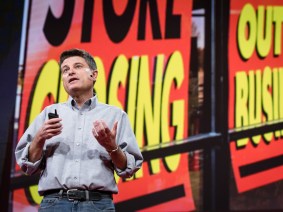As we step into a new era driven by technological advancements, the market economy faces an unprecedented challenge – automation. In his captivating talk at TED2017, Martin Ford sheds light on this fundamental threat that looms over our traditional economic systems. With my expertise in online education and Hinglish accent, let’s delve deeper into this paradigm shift and explore its implications.
A Glimpse into the Future
In his thought-provoking speech, Ford paints a vivid picture of a world where machines have surpassed human capabilities across various industries. This rapid advancement in artificial intelligence and robotics poses a significant disruption to our current job market. The once-reliable notion of humans as indispensable contributors to economic growth is being challenged like never before.
The Impact on Employment Landscape
Automation has already begun reshaping the employment landscape, with repetitive tasks being swiftly taken over by intelligent machines. From manufacturing plants to customer service centers, robots are becoming more efficient and cost-effective than their human counterparts. As a result, millions of jobs are at risk of obsolescence or transformation.
Rethinking Education for Tomorrow’s Workforce
To navigate this shifting landscape successfully, it becomes imperative for us to equip ourselves with skills that cannot be easily replicated by automation technologies. Traditional educational models need to adapt rapidly to foster creativity, critical thinking, problem-solving abilities – qualities that set us apart from machines.
A Call for Collaboration
While automation presents challenges ahead, it also offers opportunities if we approach it with foresight and collaboration between governments, businesses, educators,and individuals alike. By embracing lifelong learning initiatives and investing in reskilling programs tailored towards emerging industries such as AI development or data analysis, we can ensure a smooth transition into the future of work.
Embracing Change for a Brighter Future
In conclusion, Martin Ford’s compelling talk highlights the need to acknowledge and address the fundamental threat posed by automation in our market economy. By embracing change and proactively adapting to this new reality, we have the potential to shape a brighter future where humans and machines coexist harmoniously. Let us seize this opportunity to redefine our roles in an automated world and create an inclusive society that thrives on innovation.

